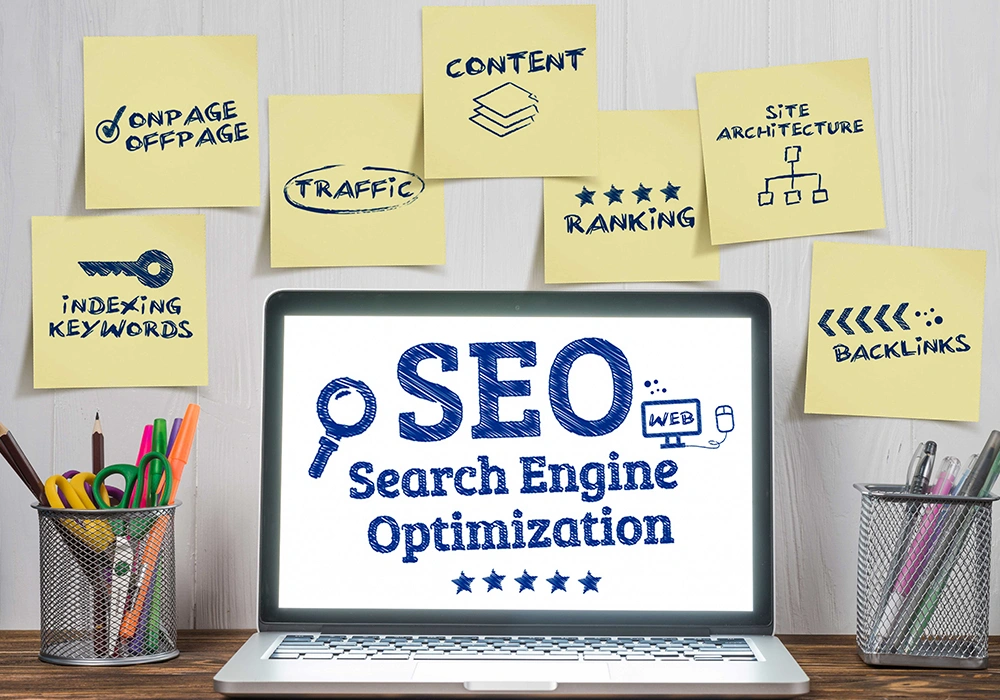
Search engine optimization (SEO) is a cornerstone of digital success, enabling businesses to attract organic traffic and build lasting visibility. Unlike paid ads, SEO delivers sustainable growth by positioning your website where customers are searching—without ongoing costs per click.
However, mastering SEO requires more than basic tactics; it demands advanced strategies that adapt to evolving algorithms and user behavior. By combining technical expertise, content excellence, and data-driven insights, businesses can dominate search rankings and drive conversions. This article explores how to leverage advanced SEO strategies to fuel organic growth and stay ahead in a competitive digital landscape.
The Power of Organic Growth
Organic traffic—visitors who find your site through unpaid search results—is a goldmine for businesses. It’s cost-effective, scalable, and signals trust, as users often view top-ranking sites as authoritative. A strong SEO strategy ensures your website appears for relevant queries, from “best running shoes” to “local accounting services.” Over time, this visibility compounds, driving steady traffic without the recurring costs of ads.
The challenge lies in complexity. Search engines like Google use hundreds of ranking factors, from content quality to site speed, and algorithms shift regularly. Advanced SEO strategies address these nuances, blending technical precision with user-focused content to deliver results. By prioritizing long-term growth over quick fixes, businesses can build a resilient online presence that withstands market changes.
Mastering Keyword Research
Keywords are the foundation of SEO, connecting user intent to your content. Advanced keyword research goes beyond high-volume terms, targeting long-tail keywords—specific phrases like “affordable vegan meal delivery”—that signal strong intent and face less competition. Tools like SEMrush, Ahrefs, or Moz uncover these opportunities, revealing search volume, difficulty, and related terms.
Intent matters as much as volume. Transactional keywords (e.g., “buy organic coffee”) drive sales, while informational ones (e.g., “how to brew coffee”) attract users earlier in the funnel. Map keywords to your customer journey, creating content that addresses each stage. Regularly update research to reflect trends, such as seasonal spikes or emerging industry terms, ensuring your strategy stays relevant and competitive.
Optimizing On-Page SEO
On-page SEO fine-tunes individual pages to rank higher and engage users. Start with title tags and meta descriptions, crafting concise, keyword-rich summaries that entice clicks. For example, a title like “Top 10 Eco-Friendly Gifts for 2025” signals value and relevance. Headers (H1, H2, H3) should structure content logically, incorporating keywords naturally.
Content quality is paramount. Write for humans first, delivering clear, valuable information that answers user queries. A blog post on “sustainable fashion tips” might include practical advice, visuals, and links to related products. Optimize images with descriptive alt text and compress files for speed. Internal linking, such as directing readers to a product page, boosts site authority and keeps users engaged. Regular audits using tools like Screaming Frog ensure on-page elements remain effective.
Excelling in Technical SEO
Technical SEO ensures search engines can crawl, index, and rank your site efficiently. Site speed is critical—slow pages frustrate users and hurt rankings. Tools like Google PageSpeed Insights identify issues, such as unoptimized images or heavy scripts, and suggest fixes. Mobile-friendliness is non-negotiable, as most searches now occur on phones. Responsive design and fast-loading mobile pages are must-haves.
Schema markup, like structured data for reviews or FAQs, enhances search results with rich snippets, increasing click-through rates. Fix broken links and redirect errors (e.g., 404s) to maintain a smooth user experience. A clean sitemap and proper robots.txt configuration guide crawlers effectively. Regular technical audits, paired with tools like Google Search Console, keep your site in top shape, minimizing obstacles to ranking success.
Building Authority with Off-Page SEO
Off-page SEO, primarily through backlinks, signals your site’s credibility. High-quality links from reputable sites, like industry blogs or news outlets, boost authority. Guest posting on relevant platforms or collaborating with influencers can earn these links organically. For example, a fitness brand might contribute a workout guide to a health magazine’s website, including a link to their shop.
Local SEO, another off-page tactic, is vital for businesses with physical locations. Optimize Google Business Profiles with accurate details and encourage customer reviews to enhance local rankings. Monitor backlink quality using tools like Majestic to avoid spammy links, which can trigger penalties. Building authority takes time, but consistent, ethical efforts yield lasting ranking gains.

Measuring and Refining Performance
SEO success hinges on data. Key metrics include organic traffic, keyword rankings, bounce rate, and conversion rate. Google Analytics and Search Console track these, showing which pages drive results and which need work. For instance, a high bounce rate might indicate irrelevant content or slow load times, prompting adjustments.
Set KPIs tied to business goals, such as increasing organic leads by 15% or improving dwell time. Regular reporting, via dashboards or monthly reviews, highlights progress. A/B testing—comparing two versions of a page—refines elements like CTAs or layouts. By analyzing data and iterating, businesses ensure SEO efforts align with growth objectives, maximizing impact.
Avoiding SEO Pitfalls
SEO is rife with potential missteps. Over-optimizing, like keyword stuffing, can lead to penalties and alienate readers. Focus on natural, user-friendly content instead. Ignoring algorithm updates is another risk—Google’s core updates can shift rankings overnight. Stay informed through industry blogs or newsletters to adapt quickly.
Neglecting user experience, such as cluttered designs or intrusive pop-ups, drives visitors away. Prioritize intuitive navigation and fast performance. Finally, don’t chase quick wins with black-hat tactics, like buying links, which risk long-term harm. Ethical, sustainable strategies build trust with both users and search engines.
Sustaining Long-Term Growth
Advanced SEO is a marathon, not a sprint. By blending keyword precision, technical excellence, and authoritative content, businesses can drive organic growth that scales over time. Regular content updates, like refreshing blog posts with new data, keep rankings strong. Expanding into new keyword clusters or formats, such as video or podcasts, captures emerging audiences.
Partnering with SEO experts can amplify results, offering insights into competitive analysis or technical optimizations. With a strategic, adaptable approach, SEO becomes a powerful engine for visibility, engagement, and revenue, positioning your business as a leader in its field.